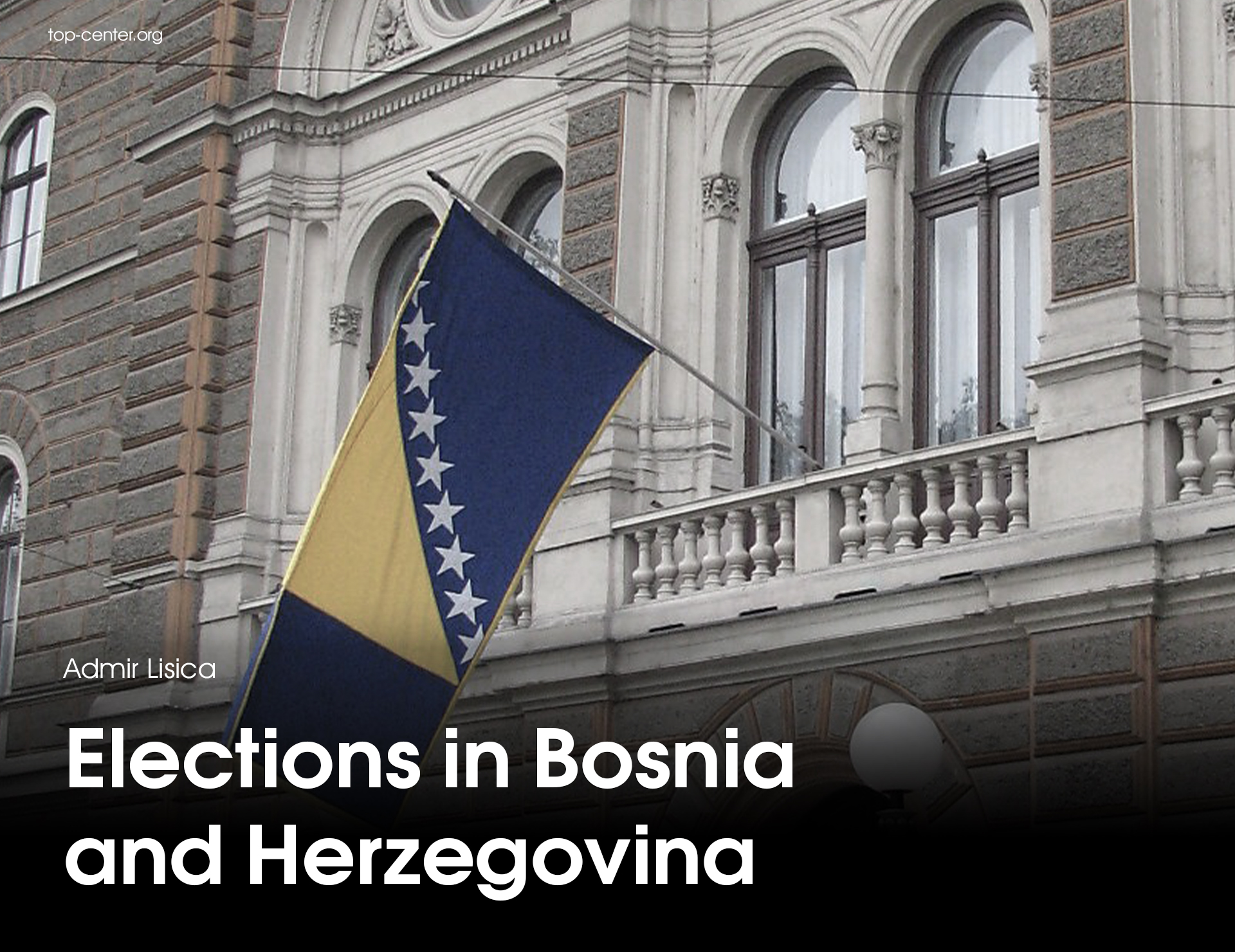Elections in Bosnia and Herzegovina

General elections in Bosnia and Herzegovina (BiH) were held last month. According to the decisions of the Dayton Peace Agreement from 1995, the Presidency of Bosnia and Herzegovina comprises three members - a Bosniak, a Serb and a Croat. This peculiar system greatly complicates political relations in Bosnia and Herzegovina. The country consists of two entities, namely the Federation of Bosnia and Herzegovina and the Republika Srpska. Bosniak and Croat members are elected from a joint constituency in the Federation of Bosnia and Herzegovina, while the Serb member is elected from voters in Republika Srpska. The singular Presidency of BiH, which is usually considered the world’s most complicated governing system, was adopted at the end of the war in 1995, in order to prevent further ethnic conflicts within the country. Due to complicated election procedures, votes are still being counted for all levels of government, although the results and the names of the new members of the Presidency are mostly expected. The new Bosniak member of the Presidency will be Denis Bećirović from the Social Democratic Party (SDP), who was supported by a total of eleven different political parties in Bosnia and Herzegovina on his way to this position. Despite his high commitment to the electoral campaign, former President Bakir Izetbegović from the Party of Democratic Action (SDA) was defeated. Interestingly, although the SDA received the majority of votes, Izetbegović did not succeed in winning the elections. The reason is largely connected to the tendency of SDA voters to support Željko Komšić, the President of the Democratic Front (DF) and the re-elected Croat member of the Presidency. Komšić defeated Borajna Krišto, a longtime close associate of Dragan Čović, leader of Croatia Democratic Union (HDZ). Krišto gained the support of the parties gathered around the Croatian National Assembly, an association of citizens that advocates for the interests of Croats in Bosnia and Herzegovina. However, the unified Croatian block did not ensure victory for its candidate.
When it comes to BiH’s entity Republika Srpska (RS), the former President Željka Cvijanović, candidate for Alliance of Independent Social Democrats (SNSD) and a close associate of the leader of the Bosnian Serbs Milorad Dodik, achieved a substantial victory. Cvijanović's election raises major concerns, because it represents the victory of a candidate who denies genocide, supports convicted war crime perpetrators, and largely endorses Russia and its aggression against Ukraine. Moreover, her victory will likely provide for a continuation of Milorad Dodik’s separatist policy, which aims at gaining the independence of Republika Srpska from Bosnia and Herzegovina.
The Presidential Elections in Republika Srpska resulted in the re-election of the President of the SNSD candidate Milorad Dodik. However, the opposition in Republika Srpska led by Jelena Trivić, a Party of Democratic Progress (PDP) candidate, refused to admit defeat, with the justification of suspected irregularities in the elections. Therefore, the Central Election Commission of Bosnia and Herzegovina ordered a recount of the ballots. What the epilogue of this decision will remain to be seen in the coming weeks, but it is clear that turbulent times are ahead.
The election night in Bosnia and Herzegovina was marked by the sudden imposition of changes to the electoral law in Bosnia and Herzegovina by the High Representative for Bosnia and Herzegovina Christian Schmidt, because of harsh pressure from Croatia’s President Zoran Milanovic and Croatia’s Prime Minister Andrej Plenković. The changes resulted in the strengthening of the House of Peoples of the Croatian delegates controlled by the HDZ and enabled future changes to the law according to HDZ's agenda. Also, such decisions deepen national divisions in Bosnia and Herzegovina, which collides with the EU integration agenda.
The imposed changes favored the strengthening of the negotiating position of the HDZ and its president Dragan Čović because according to the new electoral law, the HDZ has become an inevitable factor in the formation of the government. These decisions by the High Representative only deepened the divisions in Bosnia and Herzegovina. Indeed, SDA and DF sharply reacted to Schmidt's decisions, while other parties positioned in the unofficial pro-Bosnian political block reacted more softly to these serious circumstances. The lack of consistent criticism of the new electoral law from the representatives of the aforementioned parties raises concerns, as it may lead to the conclusion that they are putting their personal interests before those of the country.
Bosniak political parties are clearly aware that Schmidt's changes in the electoral law have helped HDZ on its way to becoming an indispensable political actor. What is surprising is that certain Bosniak political parties do not advocate for the strengthening of a strong pro-Bosnian political block, which will have the power to protect the interests of Bosnia and Herzegovina. A strong political block consisting of parties of the center-right, center and left would strengthen Bosniak's political position. In this way, the preservation of the multi-ethnic country of Bosnia and Herzegovina would be greatly helped. It is clear that the HDZ, encouraged by the High Representative for Bosnia and Herzegovina, will try to strengthen its positions as much as possible, which will lead to the further division of Bosnia and Herzegovina.
When it comes to the position of the opposition forces in the entity of Republika Srpska, it is clear that there is no major difference between them in terms of attitudes and ideology. Both sides support Russian aggression against Ukraine, glorify convicted war criminals Radovan Karadžić and Ratko Mladić, and both sides are unlikely to achieve the desired changes in the relations with Bosnia and Herzegovina. The right-wing Serbian political forces hold positions closely resembling those of the right-wing Croatian ones in relation to Bosnia and Herzegovina, which imposes the need for Bosniak politics to be united in the efforts to preserve the country. The current situation does not support this, and if Bosniaks and all other patriotic citizens in Bosnia and Herzegovina continue with divisions, Dodik's separatism and the desire to revive the defunct Herceg-Bosnia as a majority Croatian entity will become a reality.







